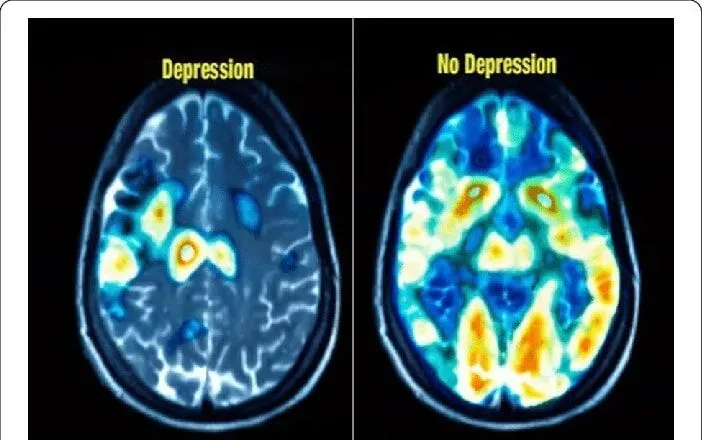How Depression Affects the Brain
Depression is more than just a mood disorder; it can lead to notable changes in brain function and structure. Understanding these changes is crucial for effective treatment and management of the condition. This article explores how depression affects the brain, the potential reversibility of these changes, and when to seek medical advice.
Brain Changes Associated with Depression
Depression correlates with several significant brain changes that can impact daily functioning and mood:
- Brain Volume: Research shows that depression may lead to reduced volumes of gray matter, the brain's outer layer that plays a key role in processing information and regulating emotions.
- Neurotransmitters: Neurotransmitters like serotonin, noradrenaline, and dopamine, which help transmit signals between brain cells, often behave abnormally in individuals with depression. These disruptions can affect mood and cognitive function.
- Inflammation: Elevated levels of brain inflammation, indicated by increased levels of translocator protein, are observed in people with depression. This inflammation may contribute to the symptoms and severity of the disorder.
Depression and Memory
Depression can also impact memory, particularly affecting the ability to recall positive experiences. Studies suggest that individuals with depression may:
- Struggle to remember happy or positive events.
- Tend to remember negative or distressing events more vividly.
- Experience a general reduction in memory recall.
Chronic stress and changes in brain regions like the hippocampus are thought to contribute to these memory issues. However, more research is needed to fully understand these effects.
Reversing Brain Changes
While some brain changes associated with depression may be reversible, treatment plays a key role. Antidepressant medications and psychotherapies can help manage and potentially reverse some of these changes:
- Antidepressants: Medications like selective serotonin reuptake inhibitors (SSRIs) and serotonin-norepinephrine reuptake inhibitors (SNRIs) can alter brain chemistry, improving mood and cognitive function.
- Psychotherapy: Therapies such as cognitive behavioral therapy (CBT) help individuals develop healthier thinking patterns and coping strategies.
- Brain Stimulation: For cases resistant to medication and psychotherapy, brain stimulation therapies like transcranial magnetic stimulation (TMS) use magnetic pulses to activate specific brain areas. These therapies are generally considered when other treatments have not been effective.
When to Speak with a Doctor
It’s important to consult a healthcare professional if you suspect you have depression. Symptoms should persist for at least two weeks and may include:
- Persistent sadness or anxiety
- Feelings of hopelessness or worthlessness
- Changes in sleep or appetite
- Difficulty concentrating or making decisions
- Thoughts of death or suicide
If you or someone you know is experiencing suicidal thoughts, contact the 988 Suicide and Crisis Lifeline by dialing 988 for immediate support.
Managing Depression
In addition to professional treatment, managing depression may involve:
- Regular exercise
- Quality sleep
- A balanced diet
- Avoiding alcohol and other depressants
Support from family, friends, and support groups can also be beneficial. Reaching out and talking about experiences can provide additional help and relief.
Supporting Someone with Depression
To support someone with depression, consider the following:
- Educate yourself about depression
- Recognize early symptoms and offer support
- Communicate honestly and kindly
- Practice active listening and remain calm during crises
Summary
Depression can lead to significant changes in brain structure and function, including alterations in brain volume, neurotransmitter activity, and inflammation levels. These changes may also affect memory and cognitive processes. Effective treatment can help manage these changes, with medications, therapies, and lifestyle adjustments playing key roles. If you suspect you or someone you know has depression, seeking professional help is crucial for effective management and recovery.



